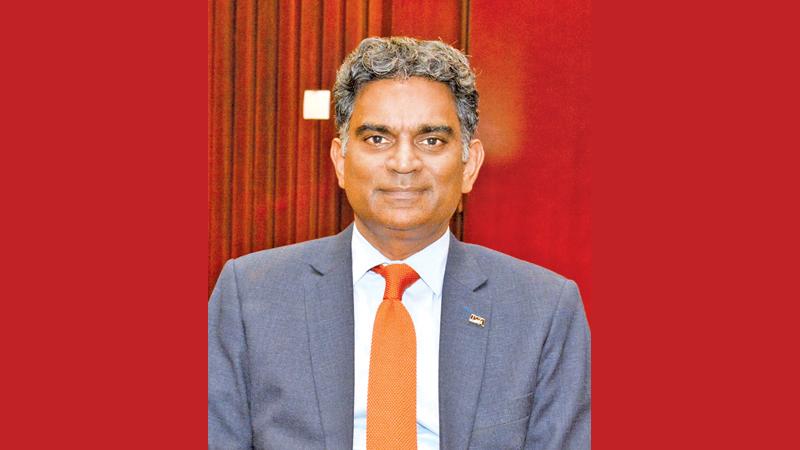
Bringing attention to global challenges in water management and sharing know-how on the subject developed in different regions in the world, the International Water Association (IWA) organised its biennial ‘Water and Development Congress & Exhibition’ in Colombo last week. It drew thousands of water management specialists, representing more than 90 countries and other stakeholders who work hand-in-hand toward sustainable water management policies, to the city.
The government of Sri Lanka and National Water Supply and Drainage Board (NWSDB) had also contributed as co-organisers of the 5-days conference ended on December 5. Additional General Manager (Policy and Planning) Water Supply and Drainage Board Thilina Wijetunge explained the importance of hosting the conference in Sri Lanka.
“Transferring knowledge, sharing technology, networking and image building of Sri Lanka are the major benefits to the country by the IWA conference. We could host a successful event,” he said.
The NWSDB has identified drinking water infrastructure as a fundamental requirement to boost overall economic development. “We know countries in other regions would have gone through the same phase as we are in now. There are a lot of experience out there,” Wijetunge said.
He noted Research and Development, the NWSDB has been executing for several years without much publicity. This year they have amalgamated their annual symposium to the IWA Conference yielding an extra mileage.
Meanwhile, Chief Executive Officer of IWA, Professor Kalanithy (Kala) Vairavamoorthy told the Sunday Observer that the IWA conference 2019 in Colombo was probably the best development conference IWA ever had.
Pro. Vairavamoorthy -a Sri Lankan by birth and a well-known water management specialist- was quite happy about the success of the event. “I am proud of being a Sri Lankan and the conference was held here. The involvement of the water board and ministries has been excellent. This conference could not have happened without the support that we got from Sri Lanka. All of the international delegates that talked to me have really enjoyed the event. They are so praising the kind hospitality of Sri Lanka,” he said.
IWA is considered as one of the largest water membership organisations in the world. It has 10,000 members, including professors from Universities, utilities and technology companies. IWA has two major conferences on its calendar, i.e. development congress which they organised in Colombo and the world congress which will be held next year in Copenhagen.
These conferences bring all experts together, who discuss some of the newest topics on water and how to develop solutions for some of global challenges. At the end of each conference, IWA publishes outcomes through books and journals.
“Sri Lanka was selected because Sri Lanka was keen to participate in IWA. The reason is that Sri Lanka is undergoing some transformation in the area of water. And they wanted to access the international knowledge base on some of the solutions for the challenges they are facing,” Prof. Vairavamoorthy said.
There had been several countries who had applied to host the conference this year, whereas the board of IWA found Sri Lanka had directed the strongest application. “Sri Lanka has a large number of water professionals. It has good universities. Therefore, our board decided that holding the conference in Sri Lanka is a good idea,” Prof. Vairavamoorthy said.
He was also fascinated about the ancient civilisation of Sri Lanka, based on water and agriculture. He appreciated the country’s tendency to revive old technologies, such as ‘cascading tank system’ which he described as a ‘sophisticated’ system in water management.
Prof. Vairavamoorthy had worked in Sri Lanka for several years as the Deputy Director General of the International Water Management Institute in Battaramulla.
He said the country is in the progressive line in water management. “Sri Lanka has good technical expertise. Sri Lankan students that I taught in Delft, Netherlands were also highly talented students. Sri Lanka has one of the best cultures of engineering and water management in the world,” he said.
Water Use and Waste Management Executive Manager in Water Research Commission in South Africa Jay Bhagwan was also a happy participant at the Conference. Bhagwan who also serves as the Chairperson for IWA special committee on non-sewage sanitation, said that taking the development congress of IWA to developing countries, such as Sri Lanka will bring innovation, knowledge and advocacy while changing the administration and political mindset to find solutions quickly.
South Africa being the first nation that made the right to drinking water a fundamental human right by their Constitution, Bhagwan had a lot to share. “Coming out of the apartheid era, we recognised the inequity around water distribution.
In our first few years of the new democracy, we introduced legislation around water, that everyone had equal right to water,” he said.
Bhagwan added, “IWA created this development congress to address challenges of developing countries. We have issues of lack of infrastructure which is further challenged by climate change”.
